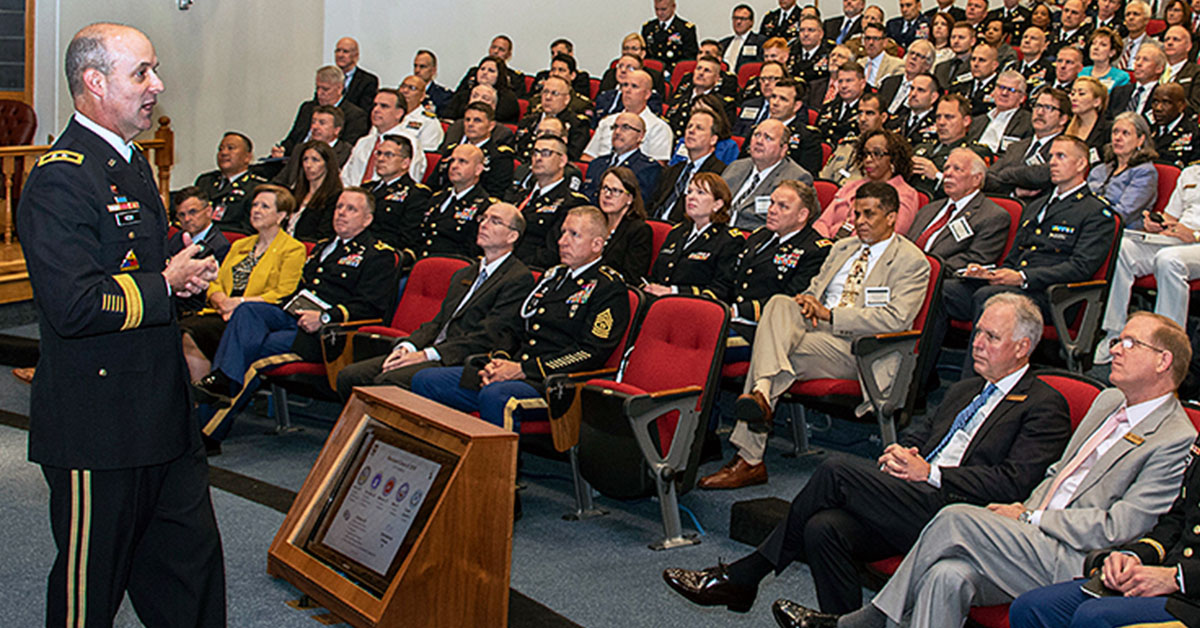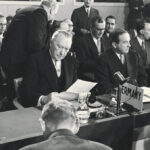
One weakness of the way we view strategy … is that we neglect the environment
Professional military education (PME) plays a vital role in preparing military leaders to fight and win the nation’s wars. PME occurs at all levels of leadership, required for the most junior non-commissioned officers to the most senior flag officers and every rank in between. But what PME should teach, how it should be taught, and who should teach it is a long-standing debate, one that has featured in several other WAR ROOM releases.
One subject area embroiled in this debate is military strategy, where there are demonstrable gaps in knowledge and perspective between the military and academic communities. As U.S. Army War College professor Celestino Perez demonstrates, national decisions to employ the military are frequently (and hotly) debated. Yet military officers may not be exposed to these debates, and they may also be disconnected from the experts and expertise available concerning the operational environment. How might PME bridge these gaps and improve student preparation for greater responsibilities?
Podcast: Download
Celestino Perez is a colonel in the U.S. Army and a faculty instructor in the Department of National Security and Strategy at the U.S. Army War College. Jacqueline E. Whitt is Professor of Strategy at the U.S. Army War College and the Editor-in-Chief of A BETTER PEACE. The views expressed in this presentation are those of the speakers and do not necessarily represent those of the U.S. Army War College, U.S. Army, or Department of Defense.
Photo: Maj. Gen. John Kem, Commandant, U.S. Army War College, welcomed 157 government, business and academic leaders to the 64th annual National Security Seminar in Bliss Hall June 4, 2018.
Photo Credit: U.S. Army War College Public Affairs





Hi, Bob. I think you are right. The intelligence community does include many insightful reports. Of course, I’m aware of these firsthand. Yet there is a common error or, really, bias that I detect that is common to both many intelligence reports and strategy and planning work done in the real world and military classrooms. I’ve described this as the macro bias, which I take from the political scientist Severine Autesserre. She identifies in her two books, The Trouble with the Congo and Peaceland, a bias that is common to high-level military leaders, diplomats, politicians, NGO workers, representatives of international organizations, development-aid workers, and others. She calls these persons “peace builders.” Her finding is that when peace builders seek to understand a conflict, they limit their analysis and conclusions to the macro level; i.e., national and regional dynamics. The problem is that there are local dynamics at play as well. Crises and violence arise from a combination of both dynamics. Hence, “solutions” have to address both. There are obviously exceptions to this in the various sub-communities that compose Autesserre’s set of peace builders. But her findings jibe with what I see in real-world analyses as well as classroom work. When this bias combines with another pathology I call “anti-politics,” the ability to do granular-level analysis suffers. Now, to your point, the consultation of intelligence reports should be a regular part of strategic performance. So too should we consult–routinely and habitually–scholarly perspectives, think-tank perspectives, expert practitioner perspectives, and–most especially–stakeholder perspectives. We need to look for complementary and–most importantly–contrasting narratives about a crisis or challenge. It is this aggressive and mindful consultation that is one part of my advocacy for “Strategy is Performance.” The military classroom is the perfect place to inculcate and sharpen these habits.
I am earning a Master’s in Military History, WWII (in final thesis course) and will continue to earn a PhD in Strategic Intelligence from American Public University/American Military University. I am a civilian and my goal is to teach military history at our local community college because I am aware that young people today quite often do not finish college and feel it is an important subject for all. Strategic Intelligence is a needed ability in all aspects of life and to understand military necessity and history is lacking in young Americans. We need to implement change in how we process the ever growing flow of media and global influence. My goal is to restore balance between soldiers and those they work hard to protect. Countries that have full civilian support of their miltary are much better off.
100% support!!
Officership is a value that is rare in the civilian world! The value in leadership and systemic action is priceless!
The military form of life long education is very practical and I admire and respect those who go through it.
Kudos to you Ms. Nicola and best wishes to your endeavors!
I’ve just learned about this podcast and can’t wait to listen to the back issues!!
donald @ newsography
There are a host of background papers and reports (classified and not) concerning countries the are produced in the intelligence realm (e.g., DIA, CIA, etc) that have been composed by experts. Independently, there are also those who are/were country desk analysts and those who are/were in military missions in these countries, as well. Because these may be military members doesn’t mean that politics is excluded in reports. Historical, unclassified reports are also of value in many cases.
Since three-year turnovers is common before a new assignment, many times these efforts are left to the G-2/J-2 to inform senior officers of a country’s internal dynamics.
U.S. Army Foreign Area Officers should be providing, in practice, that regional expertise that comments on the environment for supporting operations. They are a strategic asset. Great job, Celestino, I have been following your work for years.